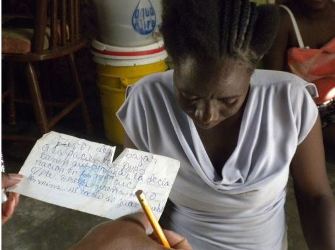Autora: Allison J. Petrozziello
ABSTRACT  Gender discrimination as a risk factor for statelessness has been understood as direct discrimination whereby legal frameworks prohibit mothers from conferring their nationality.
Gender discrimination as a risk factor for statelessness has been understood as direct discrimination whereby legal frameworks prohibit mothers from conferring their nationality.
This article discusses research findings from the Dominican Republic where indirect gender discrimination, evident in documentation and birth registration practices applicable to Haitian migrants and descendants, is causing matrilineal transmission of statelessness. Restricting access to citizenship has become a form of migration control, just as the creation of temporary, ad hoc status forms allows the state to sidestep responsibilities for migrant incorporation.
If the links between gender and statelessness are not only legal, but also historical, structural, and procedural, then disrupting this cycle requires more than legal reform. For advocacy campaigns, such as UNHCR's #IBelong Campaign and the Global Campaign for Equal Nationality Rights, to be successful, they must adopt a broader interpretation of the relationship between gender and statelessness, based on CEDAW's substantive conception of gender equality.
Enlace: https://doi.org/10.1111/imig.12527